
Generative AI receives significant transformation through AI tools that bring similar advancements to academic research processes. The artificial intelligence revolution produced scientific systems that efficiently discover publications while automatically creating references and retrieving information from documents.
Research tools combine to assist researchers with study identification and emerging trend discovery. The following section details which AI tools are most effective for research.
Consensus
Best for: Academic research and AI-powered insights
Consensus operates as an artificial intelligence search platform that gathers research papers from multiple academic fields reaching millions. Consensus Meter serves as a critical feature that summarizes research opinions about queries by showing agreement and disagreement patterns.
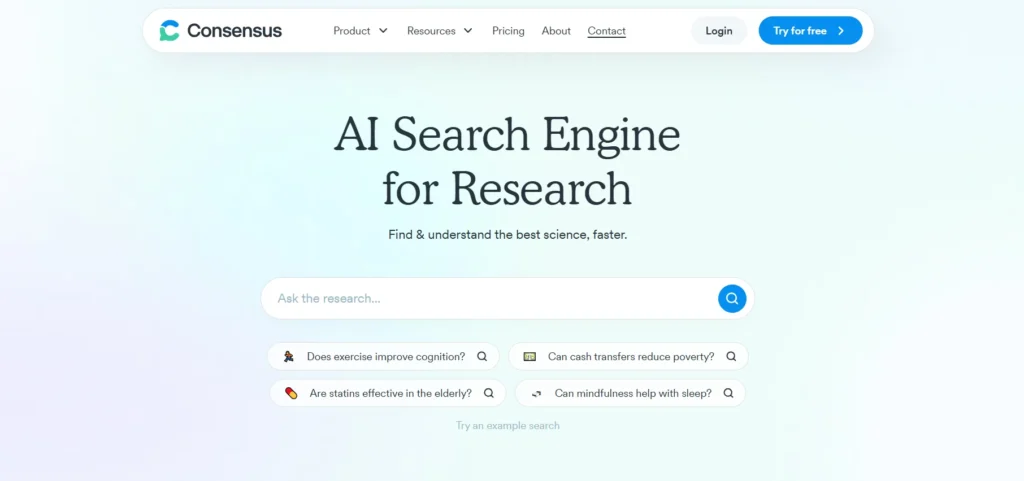
Features
- Analyzes up to 20 research papers.
- Provides AI-generated Study Snapshots.
- AI-powered summaries and insights.
- Built-in Copilot chat for research assistance.
Price: Free plan available, paid plans start at $8.99/month.
Semantic Scholar
Best for: AI-powered research tool
Semantic Scholar serves as a cost-free AI-controlled system that helps researchers discover scientific documentation. The platform contains 200 million research documents from multiple fields through its extensive research database.

Features
- Advanced filtering based on publication date, authors, and journals.
- Citation analysis to find the most influential papers.
- Users can access digital object identifiers that lead to the primary sources of research.
- AI-powered insights for quick understanding.
Pricing: Free
Scite
Best for: Evaluating research reliability with Smart Citations
Research institutions around the world depend on Scite for scientific study evaluation purposes. An advantage of this tool is that it annotates citations to display which studies confirm or refute particular statements.
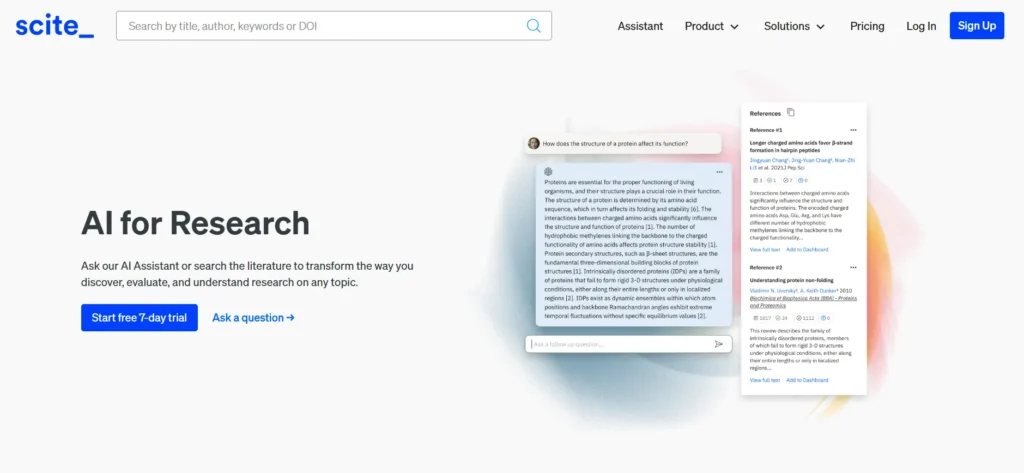
Features
Users can use Smart Citations to establish the reliability of their research.
Identifies supporting and contradicting studies.
This tool serves leading publishers across the world as well as the world’s most prominent universities.
This system receives financial support from both NIH and NSF.
Pricing: 7-day free trial, paid plans start at $7.99/month.
ScholarGPT
Best for: AI-powered research assistance in ChatGPT
ScholarGPT forms a specialized AI tool that customers can access through the OpenAI GPT store. The tool links to the internet to retrieve research papers of high quality before creating responses that use scientific studies to support these responses.
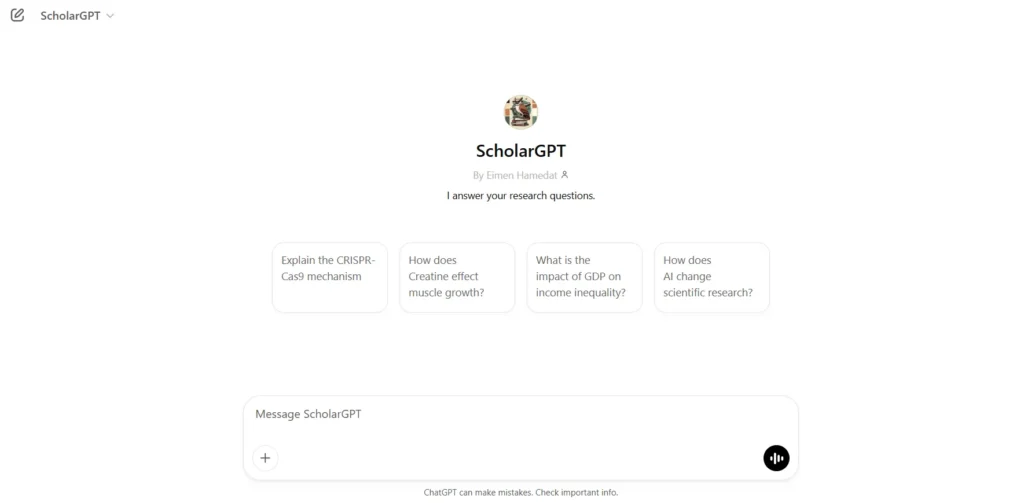
Features
- Access to peer-reviewed journal papers.
- Answers research queries with citations.
- Users can access ChatGPT without charges through its current version update.
Pricing: Free
SciSpace
Best for: Summarizing and understanding research papers
Through SciSpace researchers can perform efficient complex paper deconstruction which results in easy-to-recognize explanations. The tool features a Chat with PDF functionality which generates summary information and artificial intelligence-based insights from important research papers.
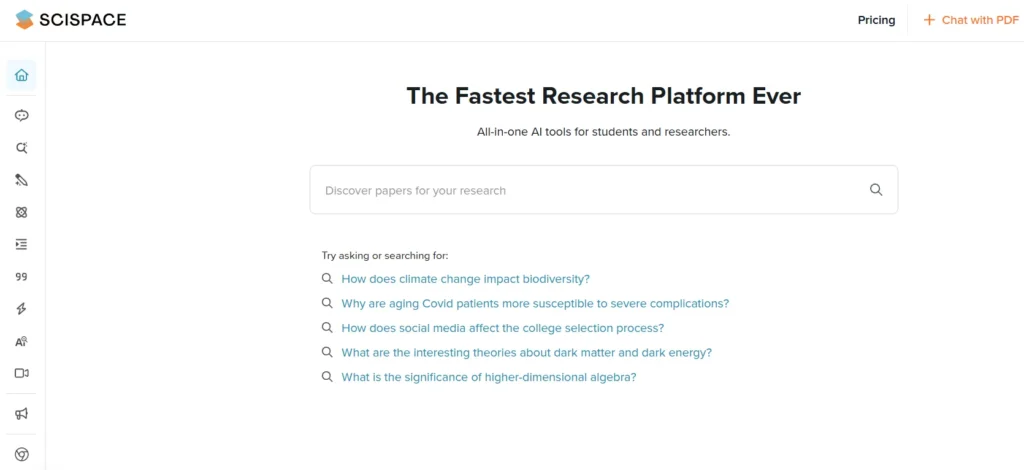
Features
- Summarizes research papers instantly.
- AI-powered Q&A for understanding key insights.
- Displays key findings, journal names, and citation counts.
- Multiple filters for refining searches.
Pricing: Free plan available, paid plans start at $8/month.
ResearchRabbit
Best for: Visualizing research papers and citations
ResearchRabbit serves as an AI-driven research tool that enables users to visualize their citations together with creating research collections through its system. The tool generates better recommendations through user-specific preferences and connects to the Zotero platform.
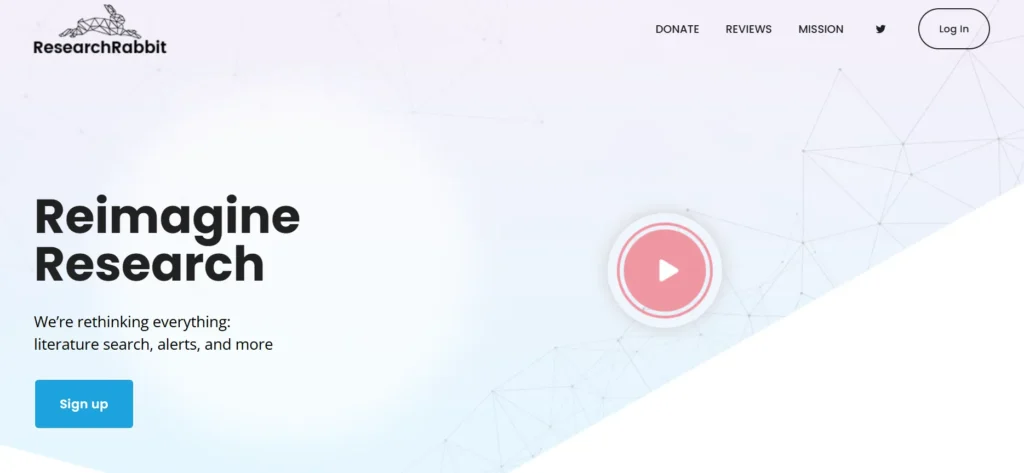
Features
- Interactive visualization of citations.
- Smart recommendation system that learns from your research habits.
- Zotero integration for research management.
Pricing: Free
Researchers benefit from these AI platforms that speed up their work by providing advanced academic search tools as well as citation evaluation capabilities alongside summary creation assistance. All examples mentioned in this discussion supply free editions which enable students and researchers to use their tools.

















